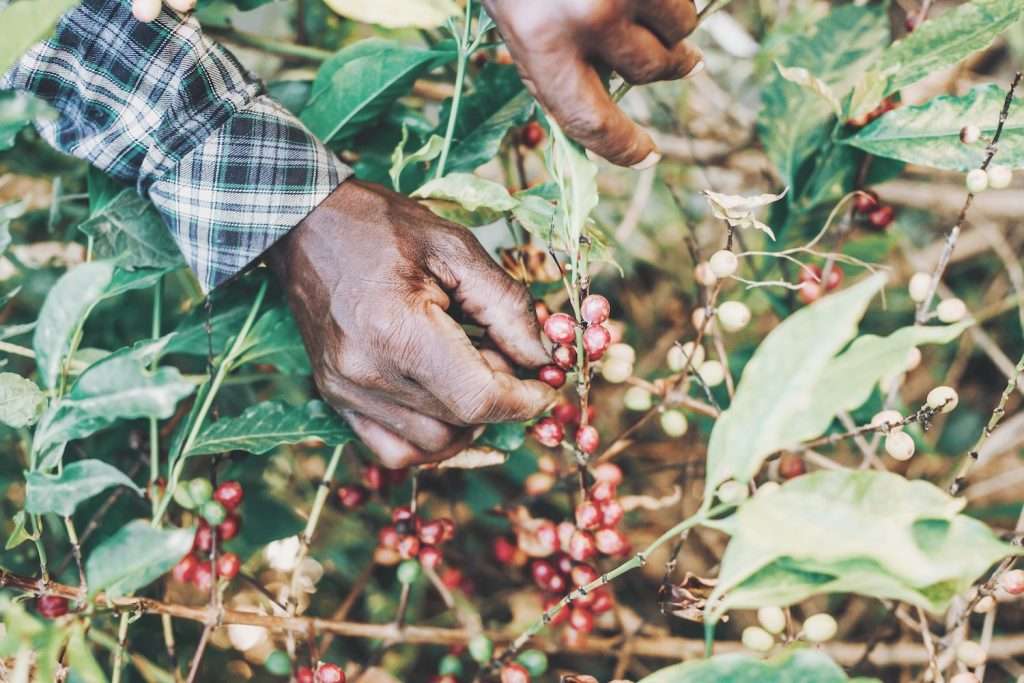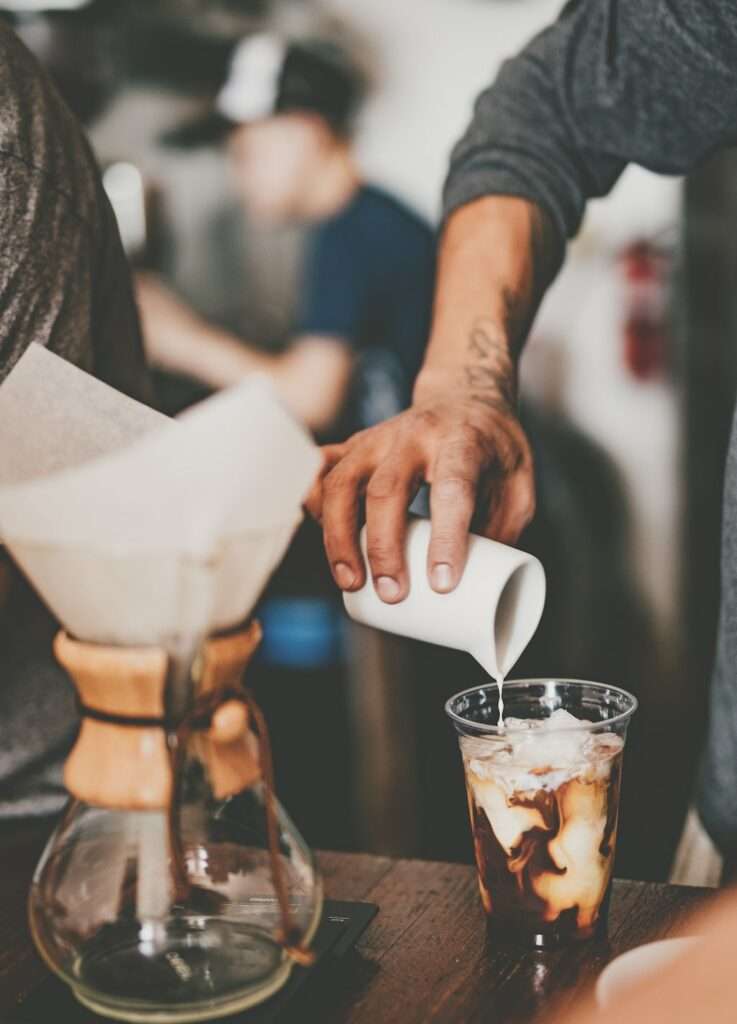The first review of its kind looks at new ways to measure the carbon impact of coffee farming.
According to recent data, the global organic coffee market size was valued at $9.2 billion in 2022 and should surpass $18 billion by 2031. Organic or not, the coffee industry faces significant challenges — chiefly climate change. A new comprehensive scientific review of coffee productions aims to refine the methods for evaluating the environmental impact of coffee. The review, published in the journal Sustainable Production and Consumption, was spearheaded by the Institute for Scientific Information on Coffee (ISIC) in collaboration with the French Agricultural Research Centre for International Development (CIRAD).
The review examined 34 different studies and international guidelines to provide a clearer standard for measuring the carbon footprint of green coffee; 72 percent of the coffee farms studied were found in Central and South America, regions that account for 70 percent of the world’s coffee production. Factors contributing to the varying carbon footprints include land use changes, levels of nitrogen fertilizer use, and emissions from the wet processing of coffee. These elements, along with the decay of coffee plant residues like pruned branches and husks, significantly affect the overall environmental impact. The research also aligns with ISIC’s ongoing efforts to broaden its focus from coffee and health to encompass sustainable farming practices.

Cécile Chéron-Bessou, the lead researcher at CIRAD, stressed the complexity of life cycle assessments which rely heavily on transparency. “Life cycle-based assessments are complex and based on numerous simplifications and choices,” she said. “A key principle for these assessments is therefore absolute transparency around the exact choices and assumptions made as part of modeling. We hope our review will serve as a robust tool for transparent and sound measurement of green coffee’s carbon footprint — helping farmers and researchers to support good practices for sustainable coffee growing.”
Detailed guidelines have been proposed to help standardize assessments across different coffee farming systems and to enhance the accuracy of models used in evaluating the sustainability of coffee production. The review comes on the heels of a 2023 report that made recommendations to standardize the measurement of coffee farm systems. That review also made recommendations on how to estimate biomass, accurate modeling, and average measurements for trees at different levels of maturity.

The review comes as California Assemblymember Eloise Gómez Reyes has introduced a bill aimed at banning the use of methylene chloride in producing decaffeinated coffee, a chemical already prohibited in various manufacturing uses due to its carcinogenic risks. The proposal, Assembly Bill 2066, seeks to eliminate the chemical from the coffee decaffeination process across the state. “We are using a known carcinogen to decaffeinate coffee,” Assemblymember Reyes said, underscoring the health risks posed by the substance. She further explained that of the three primary methods for decaffeinating coffee, only this method utilizes a carcinogenic chemical. Consumer groups and health experts are rallying behind the bill, voicing concerns over the potential dangers of methylene chloride.
According to the Clean Label Project, many consumers, especially pregnant women and individuals with certain health conditions, opt for decaffeinated coffee to avoid health risks associated with caffeine. Jaclyn Bowen, Executive Director of the Clean Label Project, stressed the availability of safer, cost-effective alternatives for decaffeination: “Over 70 percent of consumers who reach for decaffeinated coffee are pregnant women or people with health conditions,” she noted, adding, “There are other very reasonable, affordable and effective means to decaffeinate coffee. It doesn’t mean we have to use this harsh chemical.”

The Environmental Protection Agency lists methylene chloride as a hazardous air pollutant and says breathing in large amounts can damage the central nervous system, and contact with skin or eyes can result in burns. However, the EPA says it is unlikely to cause environmental harm at normal levels even though industrial emissions can create elevated concentrations in the atmosphere around the source. More than 90 percent of methylene chloride in the environment changes to carbon dioxide — a harmful heat-trapping gas.
Despite these concerns, the National Coffee Association has defended the use of methylene chloride, stating there is no substantial evidence to warrant a ban. Bill Murray, the Association’s president and CEO, contested the claims of health risks associated with the chemical. “The activists sponsoring this bill have not presented any evidence to justify banning the most common type of decaf, because none exists,” Murray declared. He cited decades of studies suggesting that decaffeinated coffee could actually help reduce the risk of various cancers and chronic diseases.
If approved, the ban on methylene chloride in coffee products would be implemented starting January 2027, marking a major shift towards potentially safer consumer products in California.
Related on Ethos:


